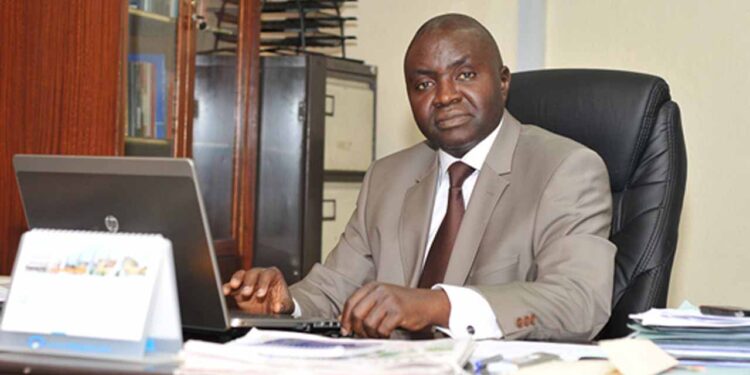
By Simon Akoje
Centre for the Promotion of Private Enterprise (CPPE), Chief Executive Officer, Dr Muda Yusuf, has called on the Federal Government to address structural challenges undermining Nigeria’s productive sectors.
Yusuf, who made the call in a separate chat yesterday in Lagos, said the government must prioritise reforms that reduce economic distortions and ease the cost of doing business.
“The government should ensure that electricity supply is more affordable and reliable, particularly in industrial hubs. “Also, the cost of clearing cargoes at the seaports should be reviewed downward because it has a ripple effect across the economy,” Yusuf said. He commended the government for stabilising the foreign exchange market but stressed that interest rates remain a major concern.
“The monetary authorities must address structural challenges undermining Nigeria’s productive sectors, experts warn GCR upgrades Jaiz Bank, gets BBB (NG), cites strong growth meaningfully to Nigeria’s economic growth.
“We are pleased to announce that GCR ratings has upgraded Jaiz Bank Plc’s national scale long-term issuer rating from BBB-(NG) to BBB(NG, This milestone reaffirms our focus on deepening financial inclusion, driving innovation, and upholding the principles of ethical, Shariah-compliant banking,” Dr. Musa said. He explained that the upgrade re- reflects Jaiz Bank’s strong financial performance, robust risk management practices, and steady progress in strengthening its balance sheet and profitability.
“The recognition consolidates Jaiz Bank’s leadership as Nigeria’s pioneer non-interest bank. We remain committed to creating sustainable value for all stakeholders and contributing to the growth of the Nigerian economy,” he noted. Dr. Musa used the occasion to express gratitude to the Bank’s Board, Management, Staff, Customers, Regulators, and Stakeholders for their unwavering trust and support in achieving this important milestone. Sure, lending rates are significantly lower than what we have today. “Lower interest rates are critical to boosting the productive sector and tackling inflation,” he said. Yusuf also urged the government to be more proactive in addressing insecurity, which continues to undermine agricultural productivity.
“Investing in security and adopting innovative strategies to protect farmers will help increase agricultural output and drive down food inflation,” the economist added. Akin Alabi, Chief Executive Officer, Corporate Farmers International, also highlighted the role of states in improving food production. He said the recent moderation in food prices was not only due to the harvest season but also to the deliberate agricultural investments by some state governments. “States such as Ekiti, Niger and Kaduna have collaborated with the Federal Government, and more states need to do the same to secure inputs and technical services.
“This will enhance output and help the country move towards self-sufficiency,” Alabi said. He noted that agripreneurs were becoming more innovative in tackling post-harvest losses. “Many are now investing heavily in cold-chain storage facilities to preserve produce that would otherwise go to waste,” he said. According to him, increasing awareness of the opportunities in agribusiness is also driving more Nigerians into modern farming.
“For instance, firms in oil palm production such as Presco and Okomu Oil are recording strong returns, and their stocks remain in high demand,” he said. Nigeria’s inflation rate dropped for the fifth consecutive month to 21.12 per cent in August, down from 21.88 per cent in July, according to data from the National Bureau of Statistics (NBS).




